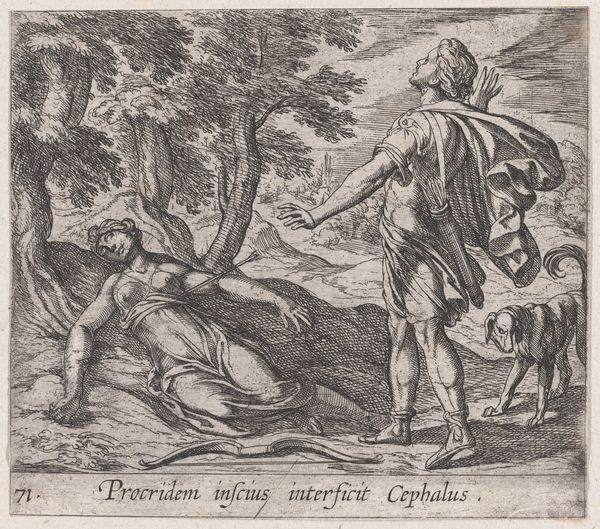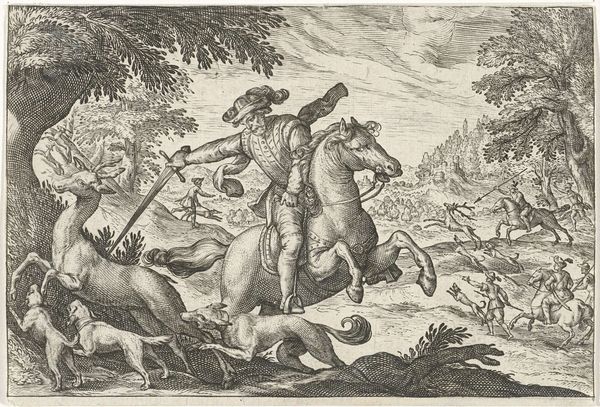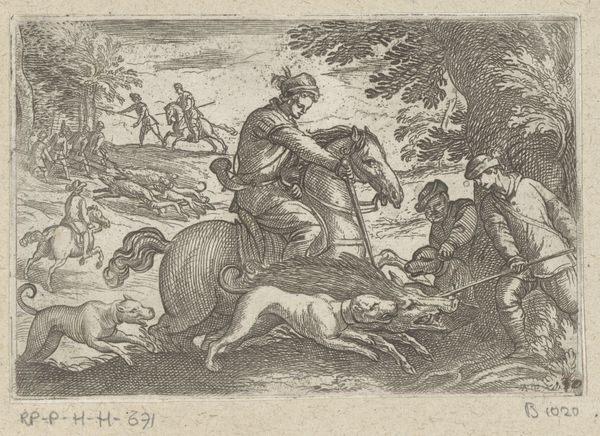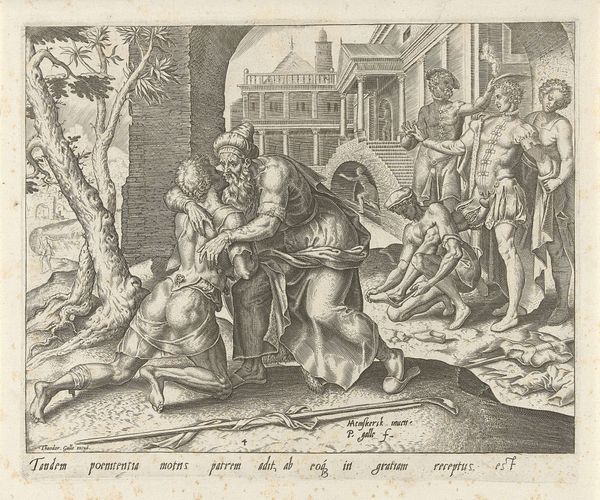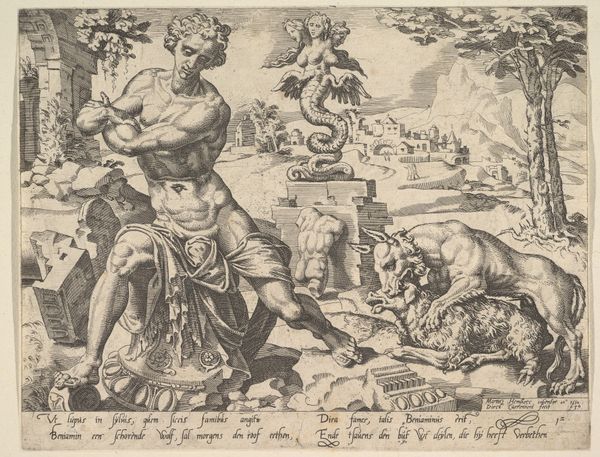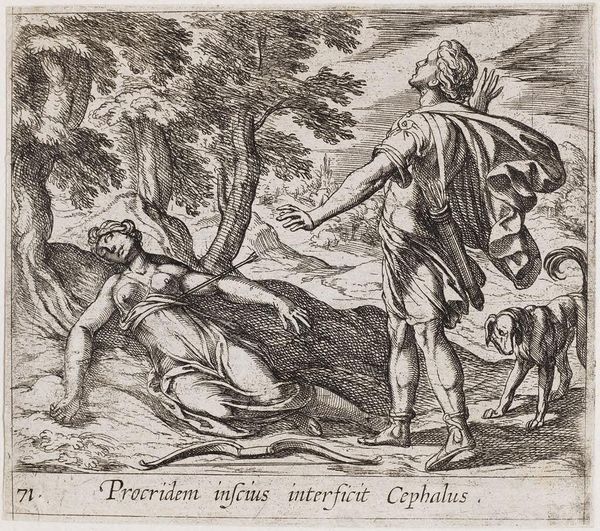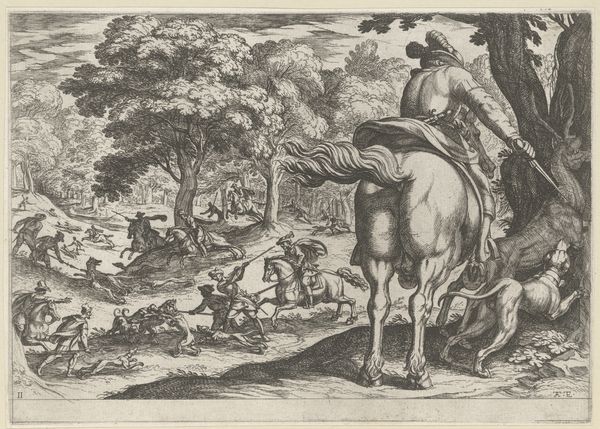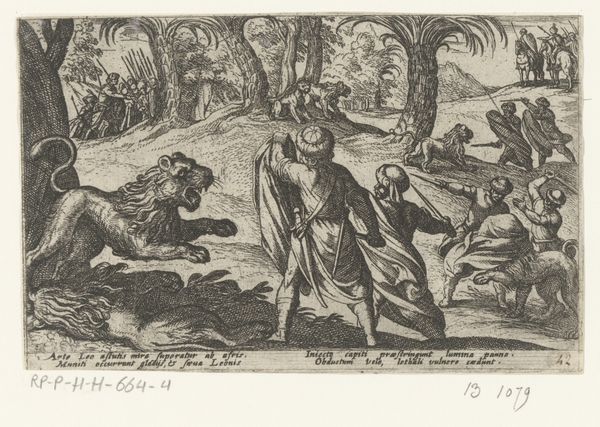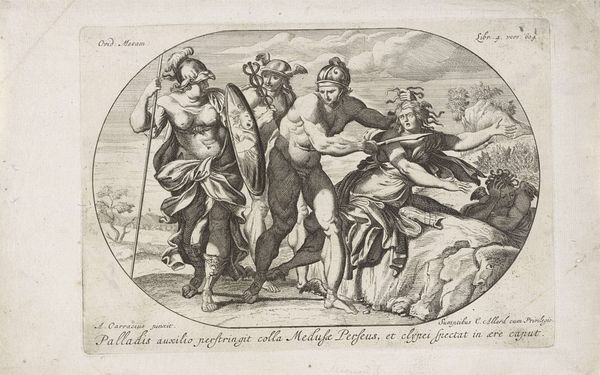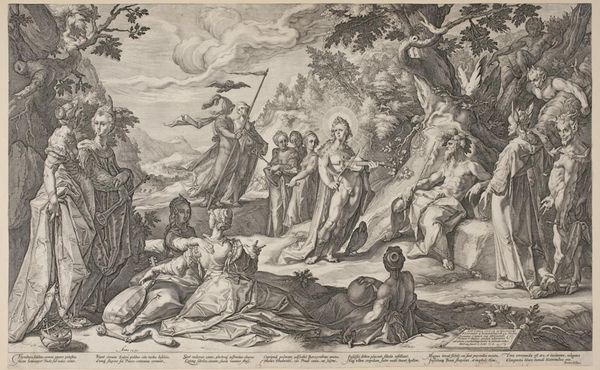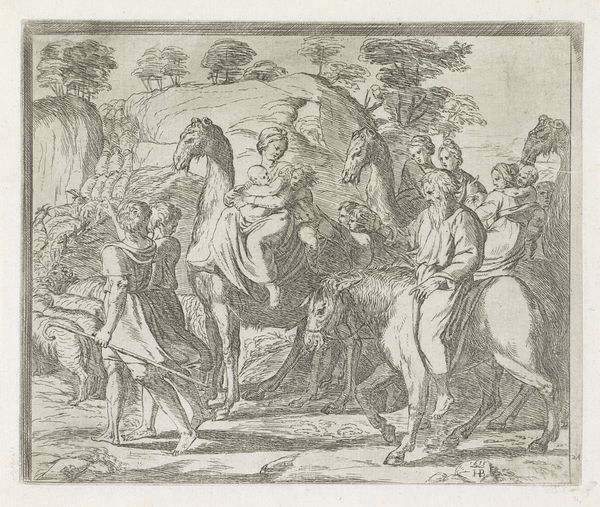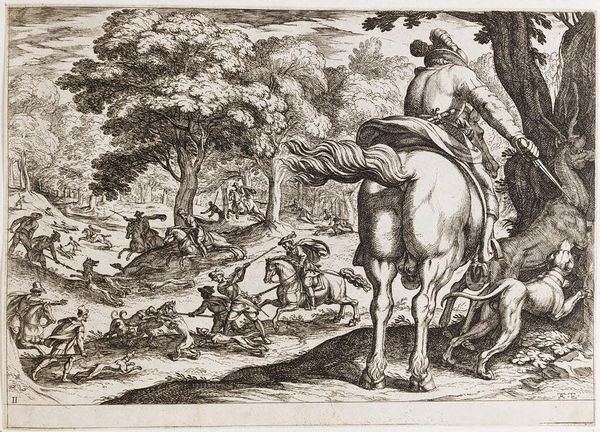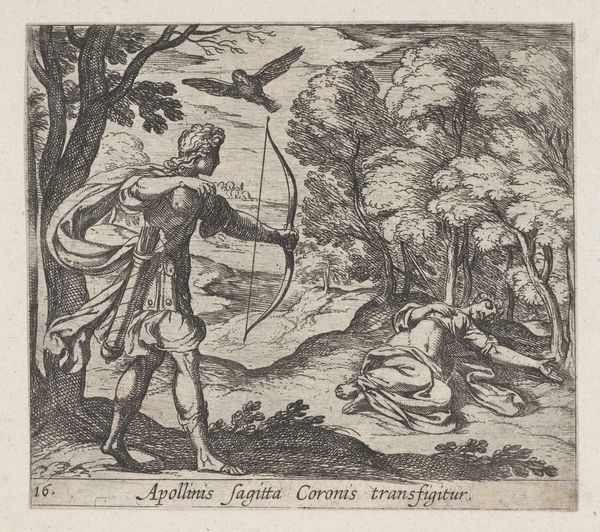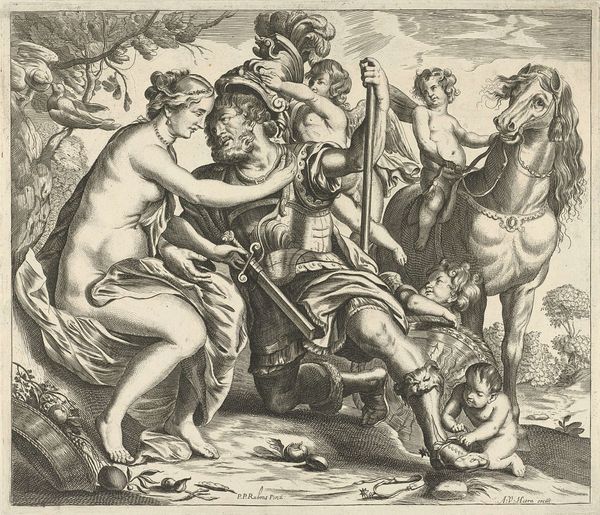
Plate 69: Cephalus and Aurora (Cephalum amore perditißimo prosequitar Aurora), from Ovid's 'Metamorphoses' 1606
0:00
0:00
drawing, print, etching, engraving
#
drawing
#
allegory
# print
#
pen sketch
#
etching
#
dog
#
landscape
#
history-painting
#
italian-renaissance
#
engraving
Dimensions: Sheet: 4 in. × 4 1/2 in. (10.2 × 11.5 cm)
Copyright: Public Domain
Antonio Tempesta created this print, Plate 69: Cephalus and Aurora, from Ovid's 'Metamorphoses' in the late 16th or early 17th century. At this time, the classical world was a source of artistic and intellectual inspiration. Here we see Aurora, goddess of the dawn, pursuing Cephalus. His rejection of her advances underscores a narrative of male agency, set against Aurora's longing gaze, which is filled with unrequited desire. Tempesta’s work reflects a cultural moment where tales of gods and mortals served as allegories for human experience, exploring themes of desire and unrequited love. Although the tale is ancient, Tempesta’s interpretation of it remains relevant in contemporary discussions about power dynamics and consent. It invites us to consider how classical narratives continue to inform our understanding of gender and desire today.
Comments
No comments
Be the first to comment and join the conversation on the ultimate creative platform.
